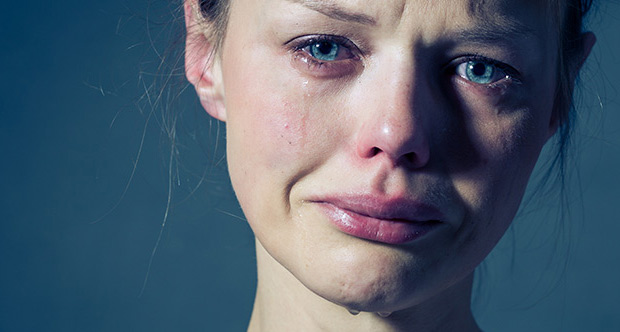Major Depressive Disorder

Major Depressive Disorder

Major Depressive Disorder

Major depressive disorder (MDD) — also known as clinical depression, unipolar depression, recurrent depression, or simply depression — is a mental disorder characterized by the presence of a severely low mood of no clear cause that persists for at least two weeks and which pervades across most, if not all, aspects of life.
While it can be hard to hope in recovery during a severe depressive episode, great strides have been made in helping people feel better thanks to thoughtful treatment plans and more understanding of the disorder. When in a depressive episode, it is wise to wait until one is in a better state of mind before making important, life-changing decisions.
Prevalence
The onset of MDD can occur in children and adolescents and in younger and older adults. MDD most commonly occurs between 20 and 40 years of age, and women are twice as likely as men to be diagnosed with it. Lifetime rates of MDD are higher in the developed world (15%) compared to the developing world (11%). According to the Global Burden of Disease study, MDD causes the second-most years lived with a disability, after lower back pain.
Symptoms of Depression:
The two main symptoms of MDD are:
People with MDD may also:
Children and adolescents with MDD might appear more irritable than seem depressed. They aren’t interested in schoolwork, and their academic performance can plummet. Children in particular can appear insecure, anxious, or unwilling to be alone.
Older adults with MDD might have recent cognitive function issues such as memory problems. MDD in older adults often coexists with physical disorders such as stroke, Parkinson’s disease, chronic obstructive pulmonary disease, and cardiovascular diseases.
Diagnosing Depression:
For a diagnosis of MDD to be made, the symptoms above, as well as three out of seven of the following symptoms, must frequently occur for at least two weeks — and they must impair functioning:
Episodes of MDD may be isolated or recurrent and are categorized as:
Causes of Depression:
The cause of MDD has a few possible but unconfirmed causes:
Risk factors for Depression:
Some people seem to be more predisposed to an MDD episode if they:
Treatment of Depression:
Major depressive disorder has shown the best results from treatment when medication and psychotherapy are combined. Improvement is gradual, not immediate, due to the time it takes to find the right medication and wait for it to be effective.
Approximately 2 to 8% of adults with MDD die by suicide, and about 50% of people who die by suicide had MDD or another mood disorder. If you are experiencing suicidal thoughts, you can call the Suicide Prevention Hotline and talk for free at 1-800-SUICIDE (1-800-784-2433) or 1-800-273-TALK (1-800-273-8255). They can also provide you with information about low-cost clinics and therapists for your depression.
Call 911 if you are seriously contemplating or vocalizing thoughts of suicide or self harm.
Symptoms of Depression:
The two main symptoms of MDD are:
People with MDD may also:
Children and adolescents with MDD might appear more irritable than seem depressed. They aren’t interested in schoolwork, and their academic performance can plummet. Children in particular can appear insecure, anxious, or unwilling to be alone.
Older adults with MDD might have recent cognitive function issues such as memory problems. MDD in older adults often coexists with physical disorders such as stroke, Parkinson’s disease, chronic obstructive pulmonary disease, and cardiovascular diseases.
Diagnosing Depression:
For a diagnosis of MDD to be made, the symptoms above, as well as three out of seven of the following symptoms, must frequently occur for at least two weeks — and they must impair functioning:
Episodes of MDD may be isolated or recurrent and are categorized as:
Causes of Depression:
The cause of MDD has a few possible but unconfirmed causes:
Risk factors for Depression:
Some people seem to be more predisposed to an MDD episode if they:
Treatment of Depression:
Major depressive disorder has shown the best results from treatment when medication and psychotherapy are combined. Improvement is gradual, not immediate, due to the time it takes to find the right medication and wait for it to be effective.
Approximately 2 to 8% of adults with MDD die by suicide, and about 50% of people who die by suicide had MDD or another mood disorder. If you are experiencing suicidal thoughts, you can call the Suicide Prevention Hotline and talk for free at 1-800-SUICIDE (1-800-784-2433) or 1-800-273-TALK (1-800-273-8255). They can also provide you with information about low-cost clinics and therapists for your depression.
Call 911 if you are seriously contemplating or vocalizing thoughts of suicide or self harm.
